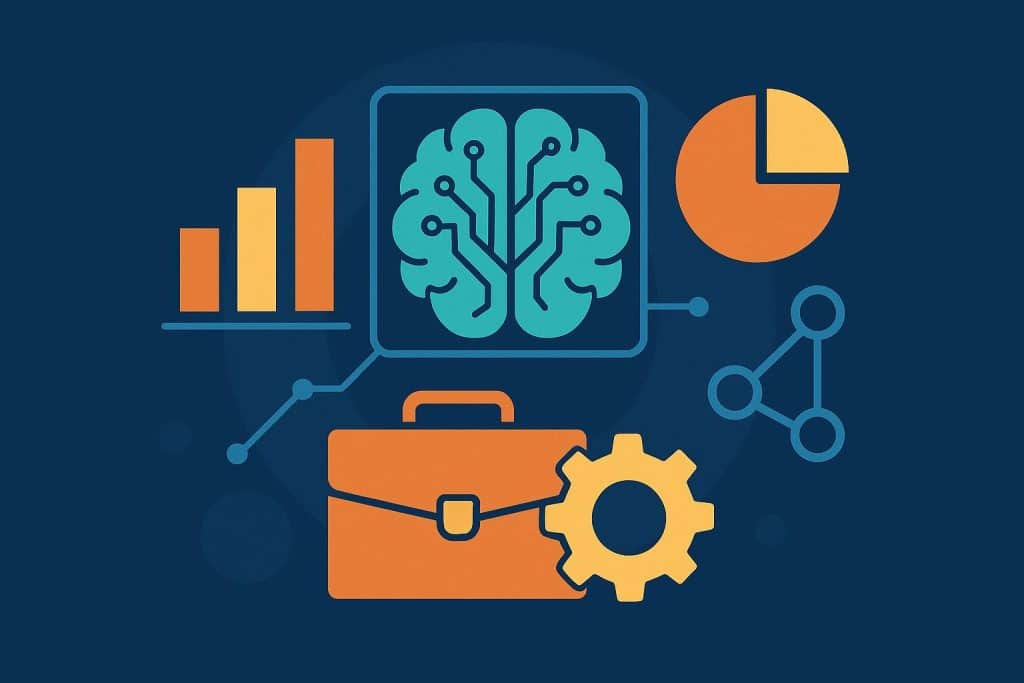The business world has changed dramatically over the past five years. Walk into any startup office today, and you’ll see entrepreneurs making critical decisions with AI tools that didn’t exist when they first launched their companies. From predicting customer behavior to assessing market risks, artificial intelligence has quietly become the unseen partner in boardrooms across every industry.
This shift isn’t just about having better data—it’s about completely changing how business decisions get made. Entrepreneurs who once relied purely on gut instinct and market experience now have algorithms that can crunch millions of data points in seconds. The question isn’t whether AI will impact your decision-making process, but how quickly you can adapt to stay ahead of the competition.
Understanding AI’s role in strategic planning, risk assessment, and competitive analysis has become essential for any entrepreneur serious about scaling their business. Let’s dive into how these technologies are reshaping the way smart business leaders think, plan, and execute their strategies.
AI-Powered Business Strategy Development
Machine learning algorithms have completely transformed how entrepreneurs approach strategic planning by analyzing market trends and consumer behavior patterns that would take human analysts months to identify. These systems process social media sentiment, purchase histories, demographic shifts, and economic indicators all at once, revealing opportunities and threats that traditional market research often misses.
Real-world applications are already proving their worth. Consider the fashion startup that used AI to analyze Instagram engagement patterns and Google search trends, discovering an untapped market for sustainable activewear among Gen Z consumers. Another example involves a food delivery company that used machine learning to fine-tune pricing strategies across different neighborhoods, boosting profit margins by 23% while keeping customers happy.
The tools for implementing these insights are more accessible than ever. Platforms like Google Analytics Intelligence, IBM Watson, and specialized solutions like Crayon for competitive intelligence let entrepreneurs access sophisticated analysis without building internal AI teams. Small business owners can now afford the same strategic insights that were once exclusive to Fortune 500 companies, leveling the playing field in ways we’ve never seen before.
Automated Risk Assessment and Competitive Analysis
AI excels at spotting potential business risks by continuously monitoring market volatility, regulatory changes, and economic indicators that human analysts might overlook. These systems can flag everything from supply chain disruptions to shifts in consumer spending patterns, giving entrepreneurs advance warning to adjust their strategies accordingly.
The competitive intelligence capabilities are equally impressive. AI processes massive datasets from public filings, social media activity, job postings, and patent applications to provide insights into competitor moves. Recent studies show that companies using AI for competitive analysis respond to market changes 40% faster than those relying on traditional methods.
Industry case studies show AI’s predictive accuracy across various sectors. Retail companies use machine learning to anticipate inventory needs and avoid overstock situations. Tech startups use AI to monitor competitor product launches and pricing changes in real-time. Even service-based businesses benefit from algorithms that predict client churn and identify expansion opportunities. The consistency of these results across different industries suggests that AI’s analytical capabilities work beyond sector-specific challenges.
The Human vs. AI Decision-Making Debate
The comparison between human intuition and algorithmic precision reveals fascinating patterns in business decision-making effectiveness. While humans excel at understanding context, reading between the lines, and making creative leaps, AI consistently outperforms in processing large datasets and identifying statistical patterns that escape human perception.
Certain industries show clear advantages for AI-driven decisions. Financial services, logistics, and e-commerce benefit significantly from algorithmic precision in areas like fraud detection, route optimization, and personalized recommendations. However, human expertise remains irreplaceable in relationship management, creative problem-solving, and ethical considerations that require emotional intelligence and cultural understanding.
An experiment made by LegalUSPokerSites.com testing ChatGPT against professional poker players illustrates this balance perfectly. While AI demonstrated superior mathematical calculations and pattern recognition, human players maintained advantages in psychological reads and adaptive strategies that required intuition and experience.
The best approach combines AI assistance with human oversight, creating a decision-making framework where algorithms handle data processing and pattern identification while humans provide strategic direction and contextual judgment. This hybrid model allows entrepreneurs to benefit from AI’s analytical power while maintaining the creative and ethical oversight that successful businesses require.
Conclusion
AI has fundamentally changed how entrepreneurs approach business decisions, providing unprecedented access to market insights, risk assessment, and competitive intelligence. However, the most successful implementations treat AI as a powerful tool that enhances human judgment rather than replacing it entirely.
The key lies in strategic integration—identifying which decisions benefit from algorithmic precision and which require human intuition and creativity. As these technologies continue evolving, entrepreneurs who master this balance will maintain significant competitive advantages over those who either ignore AI entirely or rely on it blindly.
Take time to evaluate your current decision-making processes. Identify areas where AI could provide better data analysis or pattern recognition, but remember that your experience, intuition, and understanding of your customers remain irreplaceable assets in building a successful business.
